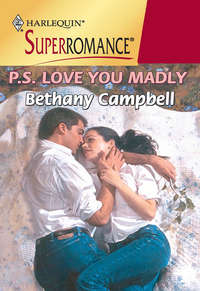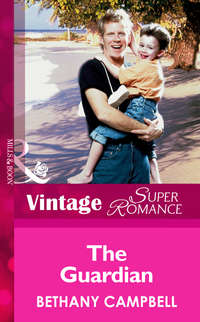
Полная версия
A Little Town In Texas
Cal met Nick’s cool blue stare. “You think your brother’s comin’ to try to buy more land?”
Nick’s gaze didn’t waver. “What do you think?”
Cal tossed back the drink then leaned both elbows on the bar. “Hell, yes. I think we done made Fabian mad.”
“You’ve made him mad?” Nick said with an ironic smile. “He doesn’t like being crossed. I crossed him.” Nick’s eyes moved to the living room to rest on his young wife.
Cal followed his gaze. “You worried about her?”
Nick shook his head, but not with certainty. “This is hard on her. She loves this land. The worst thing Fabian can do to her is buy up as much as possible and ’doze it into housing lots. That’d break her heart.”
That’d break a lot of hearts, thought Cal. He said, “What’s the worst Fabian can do to you?”
The other man shrugged. “Professionally? He could move to fine and disbar me. But he can’t if I don’t work against him for a certain time. I know the law.”
“That’s about your work,” Cal said. “What about personal?”
Nick paused before answering. “The worst? I guess what he’s doing.”
“Sending your brother down here?”
“Yeah.” Nick’s voice was toneless.
Cal slowly turned the whiskey decanter round on the bar, watching the light refract from the cut glass. He asked, “So how good a lawyer is your brother?”
“Damn good.”
Cal kept twisting the decanter to make the light dance. “Is he a feller pretty much like yourself?”
“No,” Nick said. “He’s more of a company man. To me, working for Fabian was like a game. Sometimes the game was dirty. I ignored it as long as I could. My brother thinks differently. For him, it’s a way of life. He’s absolutely loyal.”
It was a loaded question, but Cal asked it. “Why?”
Nick’s expression went cynical. “Somehow he needed that way of life more than I did. He and I never…” The words trailed off.
Cal’s curiosity prickled. “He and you never what?”
“It’s—private. But basically, he’s coming here on a righteous mission. He wants to kick my ass.”
Cal lifted an eyebrow. “Meaning he also wants to kick our ass?”
“Precisely,” said Nick.
“How do we stop him?”
Nick made a tight, exasperated gesture. “I can’t do much. Fabian’s got me in legal handcuffs for at least a year.”
“I understand,” said Cal. “Daddy explained. He’s hired lawyers in Dallas. What do you think of them?”
Nick’s face became unreadable. “They’re doing their best.”
Cal knew what the problem was. The central conflict was a complex question over water rights. J.T.’s Dallas lawyers had forced Fabian to halt construction until it was resolved.
But Fabian had cleverly used the law to stop the work at a tricky stage. Now that stage threatened danger. The dam holding Fabian’s artificial lake in place was temporary, a mere makeshift levee. With each rain that fell, it became an increasing hazard.
Fabian complained his hands were tied. The injunction against him forbade work on anything at Bluebonnet Meadows—including the dam. The Dallas attorneys dawdled and dithered and seemed incapable of solving the mess.
“The lawyers aren’t doin’ so great?” Cal persisted.
“I didn’t say that,” Nick murmured.
“I know you didn’t,” Cal returned. He reached into his shirt pocket and drew out a piece of notebook paper. “I got two names here. Other lawyers. Now Daddy probably can’t afford ’em, but me and my partners can. I’d have to try to ease into doin’ it. Not to put his nose out of joint. Would you just look at this for me?”
He unfolded the paper and laid it on the bar, smoothing it out. He could see Nick’s reluctance. But Nick, grim-faced, looked down and read the names. Cal watched his expression. Slowly, disbelievingly, Nick grinned.
Cal said, “Now, I know you can’t tell me if these folk’d be good. But you might make some little…remark. Chosen careful, I realize.”
Nick looked at Cal with something like new-won respect. “Where’d you get these names?”
“I got connections here and there,” Cal said nonchalantly.
“I see that you do.”
“So—can you say what you think?”
Nick’s smile grin became conspiratorial. “I think you’re one smart cowboy.”
“Naw,” Cal said. “It was more my partners’ idea. There’s three of us. We call ourselves the Three Amigos. They’re the brains. I’m just a simple country boy.”
“Right,” Nick snorted. He put his hand on Cal’s shoulder and laughed. “Man,” he said, shaking his head. “Man, oh, man. This is something.”
Cal laughed, too. Maybe Fabian and Nick’s brother didn’t hold the winning cards, after all.
KITT HAD NOT SEEN the Hill Country for twelve years—almost half a lifetime ago. She had convinced herself it would seem strange and was startled that it didn’t. Why does it still feel so familiar, she thought with apprehension. It shouldn’t.
Yet she knew the sweep of these hills with a primal, bone-deep knowledge. It was in her blood to know it—whether she wanted to or not.
The land had dramatic beauty. There were hills, cliffs and low mountains. Great expanses of sparse ground stretched between them. In the open spaces, only the sturdiest vegetation grew. The twisted mesquite trees crouched low to the ground, and the scrub pines were dwarfish.
Along the creeks and river banks, though, were lush green groves. Over this mixture of starkness and fertility arched the great Texas sky. It was gray today, threatening rain. In the distance, lightning glimmered like a ghost.
In her heart, she reluctantly admitted the land’s grandeur. But her head asked: What’s it good for? Cattle and little else. Raising cattle was a back-breaking struggle, and ranching often fell on ruinous times.
The memory of those hard times killed any nostalgia that might stir her. This land was beautiful, yes. But it was also cruel. She was here only because a story was here, and she happened to know the territory.
Yet when she reached the stone pillars that marked the entrance to the Double C, she paused a moment, letting the car idle.
As a child, this ranch had filled her with awe. In spite of herself, she felt a shiver of the old wonder. To her, J. T. McKinney had been rich. Now she realized he’d never amassed the wealth people called “Texas Big Rich.”
By Lone Star standards, his ranch, thirty-five thousand acres, was respectable. It was hardly dazzling. Kitt thought, It’s not a magic kingdom, it’s only land.
The Double C would have little importance if it wasn’t so close to Austin—and Brian Fabian wasn’t so greedy for it. She stepped on the gas and headed down the lane toward Nora’s house.
Nora lived at the ranch in the foreman’s house with her second husband. Ken was a fine and reliable man—unlike Nora’s first husband, Gordon Jones. Kitt had despised Gordon.
She bit her lip in remembrance. Kitt had been considered a tough child, one who could hold her own in an argument, a wrestling match, or an all-out fight. She cried no more than did the most roughneck boys; she would not allow herself.
Yet when Nora had been forced to marry Gordon, Kitt had bawled like a baby. In secret, of course. In her bed and under her covers. She’d thought Nora’s life was ruined. It almost had been.
Kitt passed the ranch house, which she’d known well. Her father had been a wrangler on the Double C, and the McKinneys used to give Christmas parties for the ranch hands and their families.
The house seemed just as impressive as ever. Lights blazed from every window, and the drive was full of cars, many of them expensive. But it was not the sprawling house that made Kitt’s heartbeat speed.
Beyond the McKinneys’ house, she saw another, more old-fashioned home standing on a rise. It was a tall, angular and white, a Victorian clapboard that more than a century ago had been the original ranch house.
A swing hung in the porch’s shade, moving gently in the October breeze. Pots of mums marched up one side of the stairs and down the other, overflowing with fat-faced blossoms of bronze and jaunty yellow. On one side was a trellis with an ancient rose bush, still in pink bloom.
It was a lovely, old-fashioned house. It was Nora’s house.
For the first time, feeling seized Kitt so hard she couldn’t fight it off. She took a deep breath and pulled onto the house’s graveled drive. She took an even deeper breath, then got out of the car. As she did, the front door of the house burst open.
Nora came half-running, half-skipping down the steps, her shiny brown hair bouncing against her shoulders. In her jeans and yellow-checked shirt, she still looked as young as a girl.
She raced toward Kitt and caught her in such an embrace that it nearly knocked Kitt’s breath away. Nora was laughing and crying and talking all at once. “Kitt-Katt—welcome back! How was your trip? I was afraid you’d be stuck all night in Dallas. You haven’t gained an ounce, not a single ounce—I’m going to have to fatten you up. Did you remember the way to the Double C? Does Crystal Creek look different?”
To Kitt’s astonishment, hot tears pricked her eyes. And when she tried to speak, she couldn’t. Her throat was too choked.
What’s wrong with me? she thought, bewildered by the force of her emotions. All she could do was hug Nora back and hold her tight.
Vaguely, Kitt realized someone else had come out onto the porch. Nora drew back, laughing at herself for crying. Kitt fought down her own tears and found her voice.
“Oh, Nora,” she said gruffly, “Stop the water works. This is like walking into a lawn sprinkler.”
Nora shook her head wryly and wiped her eyes with the back of her wrist. “If you’d come back more often, maybe the flood wouldn’t build up. I swear, I’m weak-kneed.”
“So, Nora, your wandering girl’s come home,” said the man on the porch. Slowly he came down the steps.
Kitt had collected herself enough by now to look at him with her usual cool detachment. Ken Slattery was long and lean—well over six feet tall and all sinewy muscle. He was older than Nora by almost seventeen years, but an attractive man. His pale blue eyes looked sharp enough to count the tail feathers on high-flying hawk.
Kitt recalled him from childhood, although she hadn’t known him well. The years had not much changed him. Oh, weather had lined his face more deeply, and his brownish hair was going gray at the sideburns, but the strongly boned face was the same. The biggest change was that he walked with a noticeable limp.
“Little Kitt,” he said, “we’d started thinkin’ we needed to drive to Dallas and fetch you home ourselves.”
He took her hand in welcome. His own was hard and callused, truly a cowboy’s hand. She realized that he wouldn’t embrace her or kiss her cheek. He had an air of reserve that bordered on shyness.
“I’m sorry,” she said. “I missed my first flight, then they kept delaying the next one.”
Nora took Kitt’s arm and led her toward the house. “Come on in, stranger. I didn’t make anything fancy for supper because I wasn’t sure when you’d get here. You didn’t even stop at the hotel?”
“Nope,” Kitt said. “I made reservations ahead of time.” She glanced down the slope at the McKinneys’ house. “What’s happening? A party?”
Nora shook her head. “Not really. Cal and his family are home. So it’s a gathering of the clan. You remember Tyler and Lynn and Cal?”
Kitt stiffened. She remembered all of them, but most especially Cal. She hoped to God that he’d forgotten her.
“They’re all married now,” Nora said as they climbed the stairs. “And they’re entertaining somebody you’ll want to meet.”
Kitt looked at her questioningly. Nora gave her a knowing look. “Nick Belyle. The first lawyer that Brian Fabian sent down here. The one you want to meet. Now Fabian’s sending another lawyer—Nick’s brother.”
“He’s already here,” Ken said from behind them.
The two women stopped and looked at him in surprise. “What?” Nora asked. “Since when?” Kitt’s pulses inexplicably quickened.
Ken nodded. “He’s at the hotel. Just got in about half an hour ago.”
“How do you know?” Nora asked, looking puzzled.
“Phone rang just when Kitt drove up,” Ken said laconically. “It was Cal. He said that Nick’s brother just checked into the hotel.”
“Well, why didn’t you tell me?” Nora demanded.
“By that time, you were out the door. A-weepin’ on your niece,” Ken said.
Nora gave him a mock-angry look and pretended to jab him in the ribs with her elbow. He gave her a one-sided smile. Nora squeezed Kitt’s arm as Ken opened the door for them. “That’s coincidence, eh? You and he getting here the same day? Looks like the action’s about to begin.”
Kitt only nodded. She thought it best not to mention her little adventure in the Dallas airport.
They entered Ken and Nora’s living room, and Kitt was struck by how homey and right it seemed. The overstuffed chairs and sofa seemed to beckon one to sit down and sink into soft comfort. Family snapshots crowded the mantel, and the walls were lined with overflowing bookshelves. On the coffee table were a vase of golden carnations and the latest copy of Exclusive magazine.
“Kind of spooky, isn’t it?” Nora mused. “How fast news travels? That people already know he’s here?—Nick’s brother—what’s his name?”
Mel, thought Kitt, but said nothing.
“Mel,” Ken supplied.
“Come into the kitchen,” Nora invited Kitt. “Yes. Mel, that’s it. His ears should be burning, us all talking about him this way.”
Kitt smiled weakly.
BUT IF ANY EARS SHOULD have been burning, they were Kitt’s.
Mel lay on the big four-poster bed in the West Gold Room of the Crystal Creek hotel. He was savoring, with sharp appetite, a smorgasbord of delicious details about Kitt Mitchell.
“Now wait,” Mel said, “she was a homecoming attendant both years she was at this posh school in Dallas?”
“Both years,” said DeJames, a grin in his voice. “Queen her senior year. And the Sweetheart of Phi Omega Phi.”
“What in hell’s Phi Omega Phi?” Mel demanded.
“The boys’ academic honor society. She was also editor of the high school paper.”
“And star of the girls’ track team,” muttered Mel. The redhead was clearly an overachiever. Not normal, a driven person.
DeJames said, “This is what they put under her picture in the yearbook. ‘Some girls break records. Some break hearts. Kitt Mitchell breaks both.’”
“Cute,” Mel said sarcastically. “What else does it say?”
“Most ambitious,” said DeJames. “And most likely to succeed.”
Mel envisioned her, a fiery-tressed Scarlett O’Hara, conquering by sly charm. Consumed by ambition, a schemer to beware of—even back then. He intended to have the full goods on her. He said, “But how did she get from Podunk High in Crystal Creek to the Snob-brat School in Dallas? I thought her father was just a ranch hand.”
“The Stobbart School,” DeJames corrected. “He was. And Stobbart was expensive. Very.”
“Maybe a scholarship,” Mel muttered. For track. Or academics. Or for just being disgustingly over-talented.
“Stobbart didn’t give scholarships,” DeJames said. “I haven’t figured out yet how she got there. I will. The school itself’s been closed eight years. But I was lucky—got a copy of one of its yearbooks with her in it.”
Mel’s brow furrowed. “Yeah. How did you do that?”
“Because,” drawled DeJames, “I am excellent at my work. And I also have mystical powers. You want me to fax that other stuff to you?”
“Yeah, yeah,” Mel said. “Send it on.”
DeJames had given him all the basic info on the redhead, where she’d gone to college, her job history, where she lived in New York, even who her last boyfriend had been, a writer who worked for Celebrity Magazine.
Mel glanced at his watch. “You’re working late, aren’t you, DeJames?”
“It’s how I’ll get to the top. My excellence. My mystical power. And my legendary tirelessness.”
“Don’t forget your becoming modesty,” Mel gibed.
“That, too. You want me to send this yearbook? I can get it there tomorrow by courier.”
“Do that,” said Mel. “And keep digging. I want to get beneath this woman’s surface.”
“I think you want to get beneath her skirt,” laughed DeJames.
“It’s time for you to go home now, DeJames,” Mel said from between his teeth. “To that pitiful, empty thing you call your life.”
“I happen to have a girlfriend who looks like Jada Pinkett Smith’s prettier sister. A steady girlfriend, Don Juan. You should try it sometime.”
“Goodbye, DeJames,” Mel said and hung up.
He sighed and rose from the bed. He’d kicked off his shoes and socks and was shirtless. He smacked his bare chest and padded to the window. It had luxuriantly full white curtains that matched the bedspread and the canopy over the bed. He was in a set of matched rooms called the Gold Rooms, with a sitting room in between.
The Plaza, it wasn’t. Still, it was a decent enough place, with a window seat and hooked rugs and a surprisingly well-stocked minibar. There was a combination restaurant and pub downstairs. Its Scottish décor would have struck Mel as absurd in the heart of Texas if he hadn’t known the hotel owner was from Glasgow.
Mel knew much about this town. He’d come to it as his brother had, armed with knowledge. Unlike his brother, he wouldn’t let some woman make him into a turncoat.
He stared out the window. He could identify the buildings as easily as if he’d lived here for months. There was the bank, Wall’s drug store, the Longhorn Coffee Shop, which was closed because it was Monday. Next to the café was the Longhorn Motel, where Nick had stayed.
It was nothing but an L-shaped row of units, not shabby, but clearly low-priced. It wasn’t the kind of place Nick would have normally stayed on a bet. But he had done so because of the woman, Shelby.
Mel looked at the whitewashed motel units and shook his head in disgust. He rubbed his upper lip and thought of all Brian Fabian had done for the Belyle family.
Their mother still got teary when she tried to talk about how Nick had turned his back on such a good man. How Nick had given up everything. For a woman.
“I trust you won’t make the same damn mistake,” Fabian had hissed at him before he’d left.
“No problem,” Mel had assured him. And he meant it. He was made of tougher stuff.
Behind him, the fax machine began to whir and click, receiving the first batch of data on Kitt Mitchell. She didn’t interest him as a person, he told himself. Not a bit. All he wanted was to know his enemy.
CHAPTER FOUR
KITT HAD BEEN WORRIED. After all these years, would she and Nora have anything in common, anything to say to each other?
But they couldn’t stop talking. One memory sparked another; each story unleashed a flow of more. The two found they could still complete each other’s sentences—and make each other dissolve in hopeless giggles.
They sat at the kitchen table with Ken, who listened to them with wry amusement.
“And remember when we hiked up to Hermit’s Cave—” Nora began.
“—we’d lugged tons of books up there—” Kitt put in.
“And a blanket to sit on. And potato chips and a canteen of limeade—”
“We were going to hide out all summer from my brothers—”
Nora grinned. “—and a bat pooped in my hair—”
“—and you screamed and ran halfway down the mountain—” Kitt snickered.
“—yelling, ‘Bat poop! Bat poop!’ and pouring limeade on my head. Oh, Lord! And you behind me yelling, ‘It’s okay! People use it for fertilizer!’”
Nora almost doubled up. Ken looked at his wife in wonder, as if he’d never seen her so giddy.
Kitt laid her head in her folded arms on the table and laughed until she cried. Nora told how she’d washed her hair four times and would never go back to the cave. Kitt had to carry all the books back down by herself.
This led to the story of how Reverend Blake’s dog had wandered into the church one Sunday morning when the reverend was preaching a sermon on the virtue of obedience.
“Shoo, Spot,” the reverend had thundered. But Spot wouldn’t shoo. He sat in the middle of the aisle, ignoring his master and scratching a flea.
Nora went to the counter, took a paper towel and dabbed at her face. “And we didn’t dare laugh. It nearly killed us.”
“Whatever happened to that dog?” Kitt asked. Her ribs ached.
“He died of old age. They buried him in the backyard under a rose bush. Eva Blake still gets misty when she talks about that dog.”
Nora sighed and added, “The Blakes are eager to see you, you know—Howard and Eva. They always ask about you.”
Kitt’s mirth vanished. An uneasy guilt filled her. She owed the Blakes a great deal, and she must visit them. But she didn’t want to, not at all. They brought back memories that still gave her bad dreams.
But with false cheer she said, “Of course, I’ll go see them.”
Ken got to his feet. “You two look like you’re just getting started. I need to catch some shut-eye. I’ve got a windmill to check out soon as the light comes up. Hope it doesn’t rain again.”
He kissed Nora. It was not a perfunctory good-night kiss. It was full on the lips and lingering—not long enough to be showy, but long enough to convince Kitt how deeply he cared for his wife.
“Good night, honey,” he said in a low voice. Nora rubbed her nose against his.
Suddenly Kitt felt like an intruder. Ken wanted to make love, and Nora wanted it, too. “I should be going—” she began.
“No,” Ken said. “You girls have catchin’ up to do. You don’t need me.”
Nora was insistent. “I’m not letting you go yet. After all, it took twelve years to get you back here.”
Ken kissed Nora’s cheek and limped from the room. Nora looked fondly after him. “He’s right,” she said, turning to Kitt. “We have a lot of catching up to do. I’ll make some cocoa?”
“He seems like a good man,” Kitt said, gazing after Ken.
“He is good,” Nora said. “The best. He’s made a world of difference in my life. And Rory’s. Lord, Rory. You should see him—he’s six foot one now.”
Kitt smiled the mention of Rory. He was the one good thing to come from Nora’s marriage to Gordon Jones. But Nora’s unplanned pregnancy with Rory was why she had to marry when she was only sixteen.
Kitt, eleven then, had been horrified. But she’d grown fond of Rory, and she knew how Nora loved him and how fiercely she had always protected him. And Rory had needed protecting. Gordon was abusive.
When Kitt was in college, she got word that Gordon had died—violently. In a haze of jealousy and drugs, he’d come after Nora and Ken. Cal McKinney had tried to intervene. There was shooting, and Gordon, fleeing, had been hit by a car from the sheriff’s department.
Kitt said carefully, “Does Rory ever mention Gordon?”
“Not much. But he knows the truth. I didn’t want him to find out by the gossip—which is still going around, dammit.” Nora’s frank eyes showed a spark of anger, but it quickly faded. “He’s dealt with it fine, just fine.”
“A freshman in college—I can’t believe it.” Kitt shook her head. “And he wants to be a professor, yet. He’s your boy, all right.”
Nora’s smile was both happy and sad. “He was editor of the high school newspaper. Just like you. I wish Dottie could see him. She’d be so proud.”
“She would.” Kitt put her hand over Nora’s and squeezed it. Dottie Jones had been a widow and Gordon’s mother. She’d always loved Nora and stood by her, even when Nora divorced Gordon. Dottie had been the original owner of the Longhorn, and she’d left it in her will to Nora.
“How long have you been running the Longhorn now?” Kitt asked.
“Almost ten years, off and on. I’ve poured enough coffee to float an aircraft carrier.”
“I thought,” Kitt said carefully, “that when you got married again and went back to school, you were out of that place.”
Nora tried to shrug as if it didn’t matter, but she didn’t fool Kitt. Nora said, “Ken saw that I finished my degree. He really wanted it for me….” Her voice trailed off.







